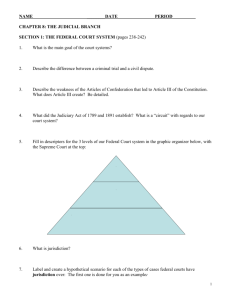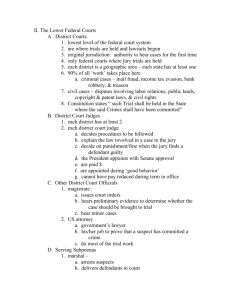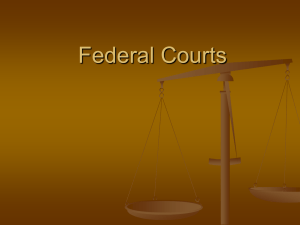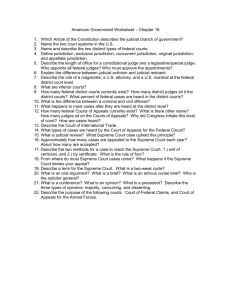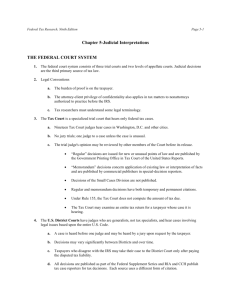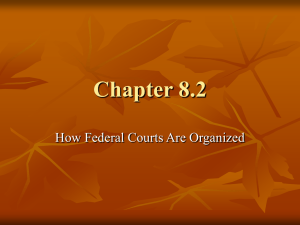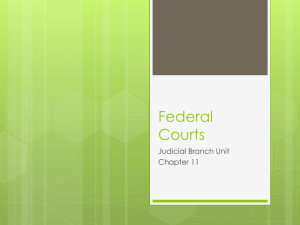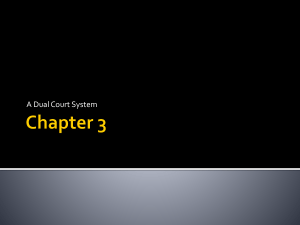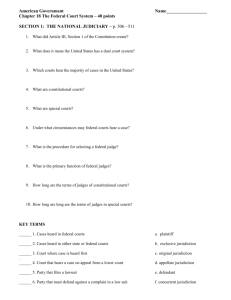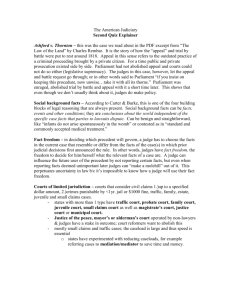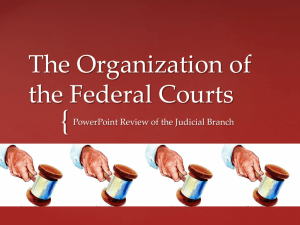Federal District Courts
advertisement
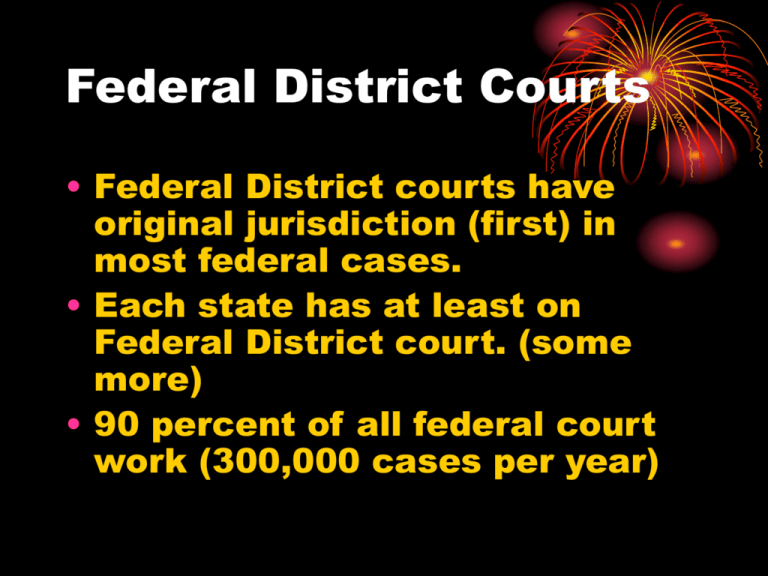
Federal District Courts • Federal District courts have original jurisdiction (first) in most federal cases. • Each state has at least on Federal District court. (some more) • 90 percent of all federal court work (300,000 cases per year) District Court Judges • Each court has at least 2 judges. • Federal Court judges decide procedures in the court, explain the law in a case, punishment or fine. • Appointed by President, approved by the Senate Other District Court Officers • Several Officials help District Courts: • Magistrate-issues court orders, hears preliminary evidence to see if a case should be brought to trial Other District Court Officers • U.S. Attorney-the government’s lawyer, proves if a suspect commits a crime, has dozens of assistant U.S. attorneys who perform most of the trial work. • U.S. Marshal-makes arrests, serves subpoenas U.S. Courts of Appeals • Courts of Appeals have only appellate jurisdiction (appeals only) • The losing side in a case may decide to appeal a ruling based on wrong procedure, misapplication of the law, new evidence…. U.S. Courts of Appeals • Present system established in 1891 to ease the burden of the Supreme Court • Today 12 courts of appeals have jurisdiction over a certain geographic area called a Circuit. • Each court receives cases from the district courts in its own circuit Appeals Court Judges • Each court has from 6 to 27 judges • Appointed for life • No Juries in appeals courts • Cases are decided by a panel of at least 3 judges Appeals Court Judges • Judges do not decide guilt of innocence. The rule on whether a persons rights have been protected or whether there was a fair trial • Judges may overturn the lower courts ruling, uphold it, or send the case back for a new trial Special Federal Courts • U.S. Tax Court-hears tax law appeals • U.S. Court of Federal Claims-when citizens sue the govt. • U.S. Court of Military Appeals-for military people to appeal a courtmartial • U.S. Court of International Tradetrade disputes from tariff/trade laws
